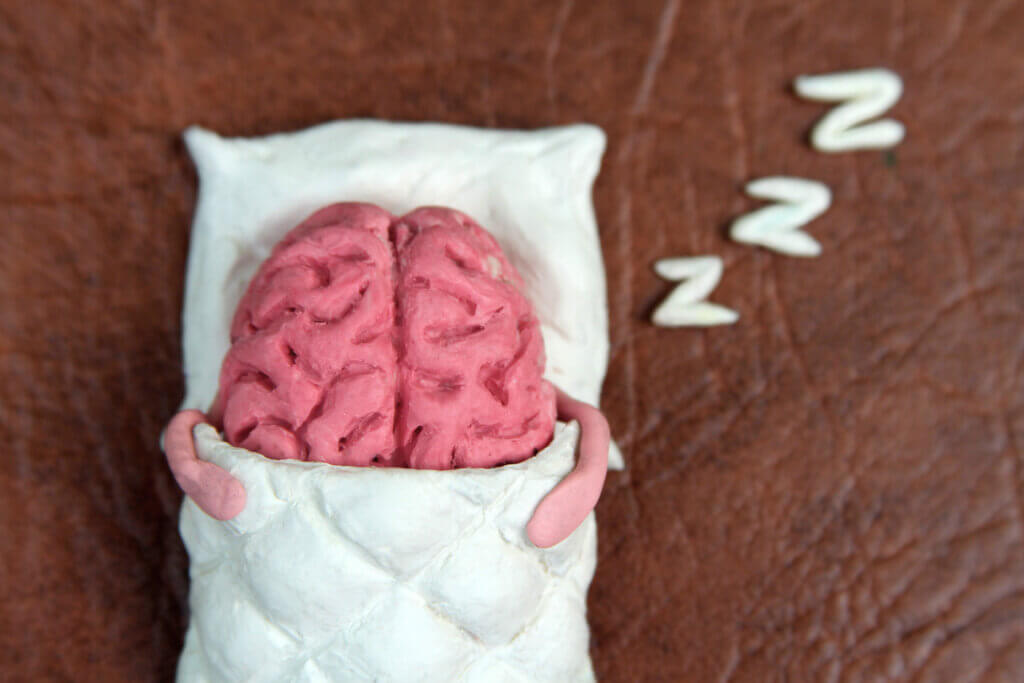We all know the feeling of being sleep deprived – groggy, irritable, and struggling to focus. But beyond just making us feel lousy, a lack of shut-eye can have serious consequences for our brains. A new study, conducted by University College London researchers and published in the journal Nature, is shedding light on exactly how sleep helps keep our neurons and synapses (the connections between brain cells) in tip-top shape.
Scientists have long suspected that sleep plays a crucial role in a process called synaptic homeostasis. The idea is that while we’re awake, our brains are constantly forming new synapses as we learn and experience new things. But if this went on unchecked, our brains would quickly become overloaded. Sleep is thought to be the time when the brain prunes back some of these connections, keeping only the most important ones.
“When we are awake, the connections between brain cells get stronger and more complex. If this activity were to continue unabated, it would be energetically unsustainable. Too many active connections between brain cells could prevent new connections from being made the following day,” says lead study author Jason Rihel, professor at University College London’s Cell and Developmental Biology Department, in a media release.
“While the function of sleep remains mysterious, it may be serving as an ‘off-line’ period when those connections can be weakened across the brain, in preparation for us to learn new things the following day.”
To test this theory, researchers used an innovative technique to label and track individual synapses on single neurons in the brains of live zebrafish larvae. By repeatedly imaging the same neurons over multiple day-night cycles, they could watch in real-time how synapse numbers changed with sleep and wake states.
What they found was striking. On average, neurons gained synapses during the day when the fish were awake and active. But during the night, when the fish were mostly sleeping, they lost synapses. The greatest loss occurred during the early part of the night, when sleep pressure (the body’s need for sleep) is highest. In the latter half of the night, when sleep pressure had been partially relieved, there was little to no synapse loss.
Scientists reasoned that if the pruning of synapses was truly driven by sleep, then depriving the fish of rest should alter this pattern. And that’s exactly what they saw. When they kept the young zebrafish awake for the first four hours of the night using gentle nudges from a paintbrush, the neurons actually gained synapses instead of losing them. But when the sleep-deprived fish were finally allowed to rest, their neurons rapidly shed synapses, seemingly making up for lost time.
Intriguingly, not all neurons followed the same rules. Researchers identified distinct subtypes of neurons in the zebrafish brain that differed in their branching patterns. Some of these subtypes reliably gained and lost synapses with the sleep-wake cycle, while others marched to the beat of their own drum. Even within single neurons, different branches responded differently, hinting at a surprising level of localized control over synapse numbers.
The team also found that it wasn’t sleep alone, but a complex interplay of brain chemicals that governed this synaptic remodeling. Boosting levels of adenosine (a molecular marker of sleep pressure) while blocking noradrenaline (a stimulating signal abundant during waking) was necessary and sufficient to trigger synapse loss, even during the day when the fish would normally be gaining connections.
“If the patterns we observed hold true in humans, our findings suggest that this remodeling of synapses might be less effective during a mid-day nap, when sleep pressure is still low, rather than at night, when we really need the sleep,” explains Riehl.
Together, these experiments paint a picture of sleep not as a passive, dormant state, but as a highly orchestrated process that actively restores balance to our brains. By selectively trimming away synapses, sleep prevents neural circuits from becoming muddled with noise and ensures we retain the most salient information. The fact that evolution has conserved sleep from zebrafish to humans underscores how essential it is for brain health.
While more work is needed to translate these zebrafish findings to humans, this study provides a compelling reason to prioritize getting your nightly dose of Zs.












